Most people think that teachers are teachers. We forget that our parents are the ones who teach us from the moment we are born until later in life, even when we are adults, and even after we are adults.
For a long time, we have focused on an education system that provides knowledge, without paying attention to the development of each person's personality. Teachers often tend to "force" students to "memorize lessons". Of course, teachers evaluate learning outcomes, including the basis for rewarding good students, based on "memorization" scores. I myself was once given a failing grade by a teacher and forced to retake the exam because I did not do the test according to the "memorization" criteria, even though the final answer was correct!
Teachers only think about teaching, cramming students with all the knowledge in a textbook. Students have to endure the pressure of grades, of studying, even being scolded and often viewed from the perspective of grades. That means, students who study well and students who study poorly are not respected equally by teachers.
The consequence of this traditional disease is that teachers, including teachers and parents, all consider "obedience" as the main factor in grading students' conduct. In student report cards for a long time, the first sentence is almost always: Be good, obey, and follow discipline well. Thus, people unconsciously train students in that way and being good, obedient, and following discipline well is the "output" of students.
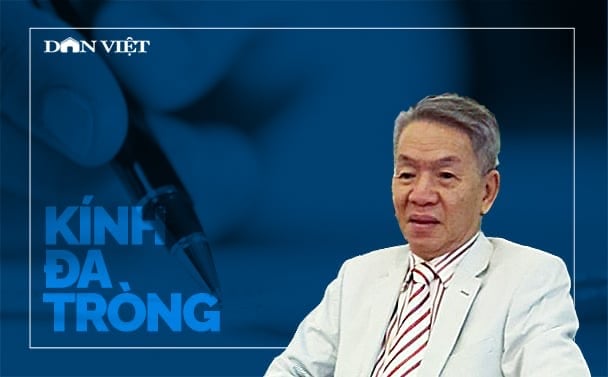
Author of the article, lawyer - journalist Phan Van Tan. Photo: DV
Students are under pressure about exam scores from two sides: teachers and parents. "Memorizing lessons" is a constant task, urging students - good students are of course those who perform this task excellently. Over time, it becomes a habit, a subconscious, causing good students to become people who only know how to "obey" - no longer daring to think of creativity.
Successful people need many skills, and learning is only one of them. We often think that learning results are everything, but in reality, it is not entirely like that. The disease of "obedience" makes learners get into the habit of compliance, only knowing how to obey, so they have little ability to think creatively and innovate.
There is nothing wrong with being obedient, but it partly shows that we are training people who only know how to obey and follow. Meanwhile, the current goal of the 4.0 socialist era requires students to be active, independent and creative in acquiring knowledge.
Just like that, "obedience" has become a chronic disease that infects both the teacher and the learner. It is a serious disease, and it is difficult to change the lives of individuals and communities. Once infected with this disease, over time, it will form a sense of dependence and passivity in each individual.
So what should we do to cure this disease, to make every day at school a happy day for students, and for the school to be a place that brings happiness to students, not just grades?
To build a happy school, the most difficult thing is to change the concept of teachers and administrators, first of all about the goal, not just being good and obedient, but training students to be self-reliant, dynamic, creative, critical and allowing them to express themselves.
It is difficult but necessary to overcome this concept, for a future generation of sufficient stature to overcome the challenges of the 4.0 industrial era. This requires teachers and parents to cooperate and accompany each other to move towards a society with many successful people - talented and creative, developing - capable of changing the world .
Teachers and parents work together to help students gradually develop the following qualities: Emotional stability and emotional development; Proactiveness, the ability to think carefully and act on their own; Adaptability and sociability; Ability to self-cultivate knowledge and develop intellectual capacity.
When teachers and parents work together to influence learners to form the above qualities and develop in a balanced way, learners, whether good or not, will follow the correct order of development and have a greater chance of success in life.

General Secretary Nguyen Phu Trong, Secretary of the Central Military Commission, delivered a speech directing the 6th Central Military Commission Conference, term 2020 - 2025. Photo: People's Army Newspaper
Looking at society more broadly, when a child is infected with "obedience disease" from school, later when he becomes a citizen of society, he will likely also become a civil servant who only knows how to "obey" and "submit" to his superiors regardless of circumstances or conditions...
This not only destroys the creativity of that person but is also bad for the development of the organization, agency, unit... when that place lacks necessary criticism, which is also the driving force for development.
Remember, in his speech at the 6th Central Military Commission Conference, term 2020 - 2025, General Secretary, Secretary of the Central Military Commission Nguyen Phu Trong emphasized the work of training and fostering military cadres, summarizing the concept of "7 dares" including: Dare to think, dare to speak, dare to do, dare to take responsibility, dare to innovate, dare to face difficulties and challenges and dare to act for the common good.
The connotation of the concept of "7 dares" is to encourage the spirit of innovation, boldness, creativity, and renewal of each individual, cadre, and civil servant in the State apparatus, to overcome conservative, stagnant, and slow-to-renew thinking... for the common goal and benefit.
Obedience is not bad, but when "obedience" becomes a "chronic disease", over time it will create people who are afraid of innovation, do not dare to face challenges and difficulties to explore, promote development, and move forward.
A developed society and a strong nation need creative minds, dynamic ideas, and endless aspirations... not people who are always passively "obedient".
Source: https://danviet.vn/khi-vang-loi-thanh-benh-kinh-nien-20240702140036949.htm




![[Photo] Prime Minister Pham Minh Chinh launched a peak emulation campaign to achieve achievements in celebration of the 14th National Party Congress](https://vphoto.vietnam.vn/thumb/1200x675/vietnam/resource/IMAGE/2025/10/5/8869ec5cdbc740f58fbf2ae73f065076)
![[Photo] Opening of the 13th Conference of the 13th Party Central Committee](https://vphoto.vietnam.vn/thumb/1200x675/vietnam/resource/IMAGE/2025/10/6/d4b269e6c4b64696af775925cb608560)

![[Photo] Prime Minister Pham Minh Chinh chairs the Government's online conference with localities](https://vphoto.vietnam.vn/thumb/1200x675/vietnam/resource/IMAGE/2025/10/5/264793cfb4404c63a701d235ff43e1bd)




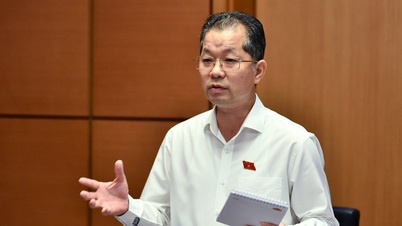





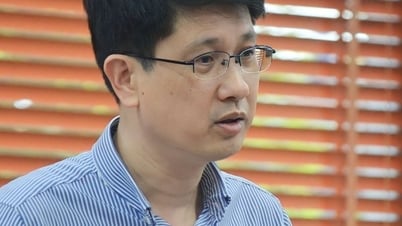




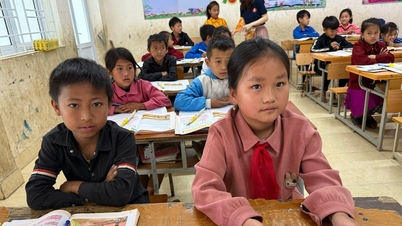













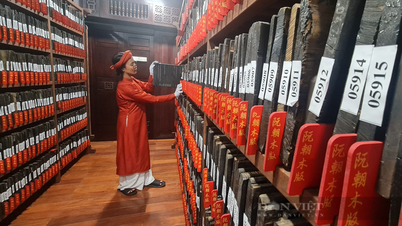




















































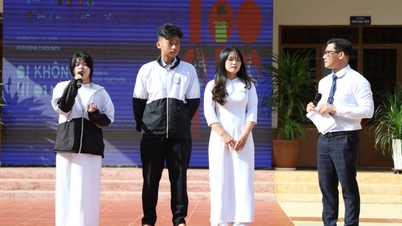












Comment (0)